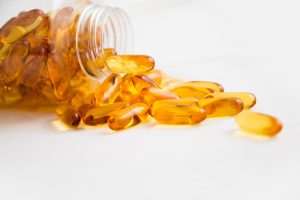 There are people who take a daily vitamin to boost their nutrition, those who get all their nutrition from healthy eating and those who eat nothing but junk and think that a supplement is the answer. There are pros and cons of supplements. One of the real cons of supplements are people who eat junk all day and think the supplement will solve any nutritional needs. Nothing replaces healthy eating. They’re called supplements for a reason. They’re meant to supplement a healthy diet, not replace it.
There are people who take a daily vitamin to boost their nutrition, those who get all their nutrition from healthy eating and those who eat nothing but junk and think that a supplement is the answer. There are pros and cons of supplements. One of the real cons of supplements are people who eat junk all day and think the supplement will solve any nutritional needs. Nothing replaces healthy eating. They’re called supplements for a reason. They’re meant to supplement a healthy diet, not replace it.
Something as simple as vitamin C supplements can be beneficial or hazardous.
If you’re eating healthy, you should get enough vitamin C in your diet. However, if you’re under stress, smoke or exposed to contagious conditions, including the common cold, supplementing it can help. All those things can deplete your vitamin C, so supplementing can be helpful. However, there are situations where you can overdo. Taking too much vitamin C can cause diarrhea, vomiting, heartburn, nausea, headache, cramps and even insomnia. Fat soluble vitamins like vitamin A and D build up in your body and can cause serious problems, like liver damage, pressure on the brain and hypercalcemia–too much calcium in the blood.
Your age affects your nutritional requirements.
Lots of things affect your need for extra nutrition. Pregnancy, age and menstruation are three. The older you are, the less you absorb some nutrients. Older women tend to have magnesium deficiencies. Soaking your feet in Epsom salts can help that. Supplementing with B12 is important for women who might get pregnant. The older you are, the harder it is to absorb nutrients, so for seniors, supplementation may be extremely important. The same is true for pregnant women or those who have been ill. Blood tests can help decide.
Vitamin deficiencies can occur even if you have a healthy diet.
One of the most interesting results of the focus on the sun and cancer is the use of sunscreen and also the increase in vitamin D deficiency. The best place to get vitamin D isn’t from food, but to create it in the body from the ultraviolet rays of the sun. Sunscreen changed that and so did the change to a more indoor lifestyle. Vitamin D shortage is prevalent and rather than taking a supplement, consider safe sunning. It’s where you go outside without sunscreen, but for a short time, increasing it as you develop a tan. Vitamin D necessary for building and mineralizing stronger teeth and bones, it keeps you mentally more alert and boosts your immune system. It helps reduce abdominal fat, provide stronger hair and improves heart health.
- Don’t take “miracle pills” or illegal substances to help build muscles. Instead, make a veggie smoothie as a snack and throw in a small amount of protein powder to the mix if you need more protein in your diet. Make sure you use a reputable company that’s strictly natural protein.
- Before you add supplements to your life, always check with your doctor. Some supplements can actually interfere with medication or exacerbate health issues.
- Some supplements are actually beneficial. For instance, krill or fish oil as a supplement for Omega-3 fatty acids have proven to help.
- While fat soluble vitamins can build up in your body, excess water soluble vitamins are flushed out in the urine. If you don’t need the supplementation, it won’t harm you, but could give you very expensive urine.
